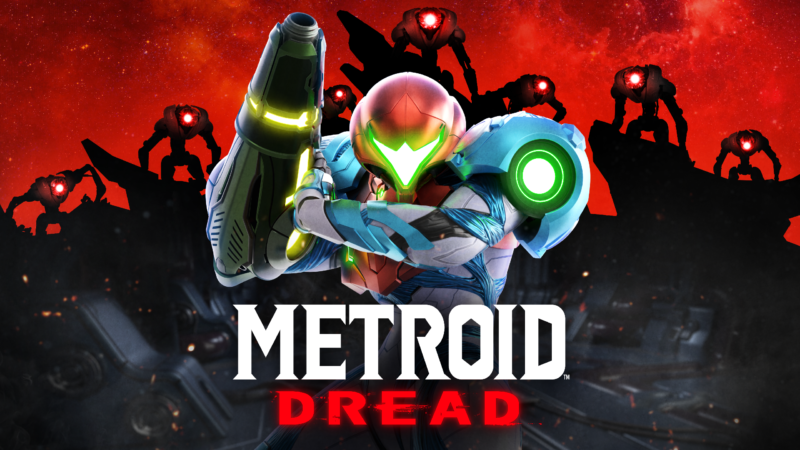
Metroid Dread developer MercurySteam has been criticized by multiple former members of the company whose names were left out of the credits, the ex-staffers say.
Speaking to the Spanish outlet Vandal, several former employees who contributed to Dread‘s development—which was handled primarily by the Madrid-based studio with nominal oversight from Nintendo EPD in Japan—said they were not acknowledged for their efforts despite working on the game for months. The outlet also confirmed a company policy at MercurySteam that stipulates any employee must work on at least 25 percent of a project’s total development to be included in its credits.
“The policy of the studio requires that anyone must work on the project at least 25% of the time, of the total development of the game, to appear in the final credits,” a studio representative said in an email to Vandal (via our google translated-script). “Of course, exceptions are sometimes made when making exceptional contributions.” Sources in the story put the game’s total development time at between three to four years.
Credit where credit is due
Roberto Mejías, a 3D artist who worked on the game for eight months, questioned the developer in a public post on LinkedIn offering congratulations to the Dread team.
He said:
I’m not surprised of the quality of the game… the amount of talent on that team was through the roof. I know this first hand because, despite not being included on the game’s credits, I was part of that team for eight months… While playing the game, I’ve recognized quite a few assets and environments I worked on… so my work is there. Then, I would like to ask MercurySteam: Why do I not appear on the game’s credits? Is it some kind of mistake? I would really appreciate having some answer to this.
In a separate email to Vandal, Mejías added that MercurySteam “can always say that they consider someone’s contribution to be exceptional and do whatever they want.” His leaving the company in violation of its policy-stipulated 42-day minimum notice, he said, may have also been a factor in his name not appearing in Dread‘s credits. (Spanish labor law requires workers to give at least 15 days’ notice before terminating employment.)
Mejías was joined by several other anonymous former developers who contributed to Vandal’s story.
“Not accrediting the work of the team that puts all the love in the project, and the effort, is a very ugly practice,” said one person who worked on the game for 11 months. “The 25% issue sounds like an invented one to me and that it suited them well for the above case.”
Representatives for Nintendo did not immediately reply to questions by press time.
This isn’t MercurySteam’s first rodeo with Metroid—the studio previously developed Metroid: Samus Returns for Nintendo’s 3DS in 2017. After that game’s release, no developers came forward to say their names had been omitted from the credits.
The studio was also subject to controversy after the release of 2014’s Castlevania sequel, Lords of Shadow 2. Rumors swirled that co-founder Enric Alvarez had been responsible for creating a negative studio culture, which he and former Konami producer Dave Cox refuted in a 2016 interview with Eurogamer.
“Pretty much everybody in the studio has been here since day one,” Cox told the outlet at the time. “I’m working with the same people who worked on Lords of Shadow 1 and 2. If it were such a horrible environment, and if Enric was such an asshole, then nobody would work here.”
A long (uncredited) history
Of course, the history of names being stricken from game credits goes back decades. Atari infamously refused to credit its games’ developers, leading Adventure creator Warren Robinett in 1980 to create a secret room bearing his name.
Much more recently, multiple developers took to Twitter to express disappointment that their work on Arkane’s Deathloop had reportedly not been attributed in that game’s credits. Some workers, they claimed, had been omitted entirely, while others were relegated to a generic “special thanks” list at the end of the crawl.
Rockstar has also been criticized in recent years for leaving numerous names out of the end credits for Grand Theft Auto V and Red Dead Redemption 2. In 2018, the company told Kotaku that worker accreditation was based on whether employees got “to the finish line,” with developers who left before a game was shipped getting left out in the cold. That statement was walked back earlier this year, clarifying that current and future employees will be credited for their work even if they leave Rockstar before a game ships.
Meanwhile, Japan has an entire unsung “support” industry known as “white label development” based around insistently anonymous studio work. Long-running outfits like Hyde and Tose contribute in secret to powerhouse franchises like Final Fantasy, Yakuza, and Resident Evil, among many others. (Tose perhaps most famously helped on the development of Zelda: Breath of the Wild, listed only as a “special thanks” mention in its credits.)
Other not-agreed-upon omissions still happen in Japanese development as well. In 2008, Capcom removed the entire staff list of the now-defunct Clover Studios from the credits of Okami‘s port for Nintendo Wii. The game’s original director, Hideki Kamiya, did not approve of this decision.
“I feel dejected, and not only because my own name has been erased from my creation,” Kamiya said on the blog for Platinum Games, then newly formed from Clover’s ashes. “The fact that they cut the entire staff is utterly deplorable.”
https://arstechnica.com/?p=1804368

